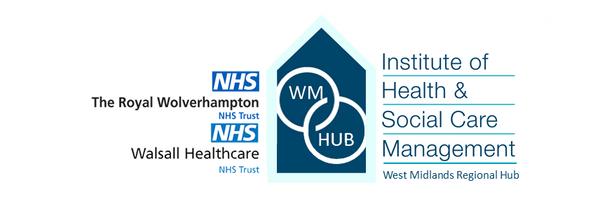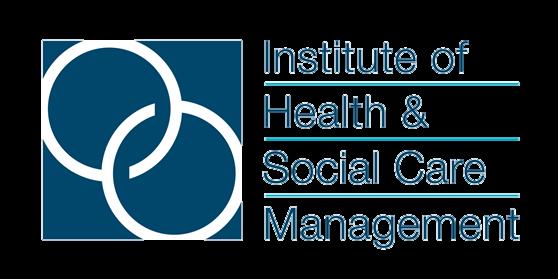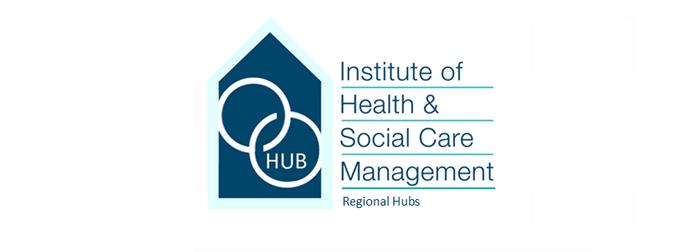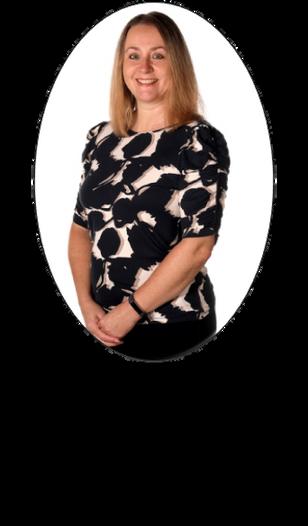
5 minute read
West Midlands - Developing a Research Ready Allied Health Profession Workforce: Where Should the Conversation Start
Developing a Research Ready Allied Health Profession Workforce: where should the conversation start?
Authors: Dr Nicky Eddison and Dr Ros Leslie
Trust: RWT

The publication of Health Education England’s Research and Innovation strategy for Allied Health Professions (AHPs)1 in January 2022 has been seen as a real opportunity for transformational change in AHP research and innovation, reputation, influence and impact on services. At the Royal Wolverhampton NHS Trust, we have considered how best to embed this strategy within our services. As a result, we have developed a “Community of Research Practice (CORP)” which is a multi-disciplinary initiative creating a network open to all staff regardless of grade or experience, to bring people together to discuss the research and innovation happening within the Trust. An integral part of CORP is the quarterly seminars which provide a forum for sharing research experiences, findings, and outcomes, with discussion and enquiry beyond one speciality and across the organisation.


July 2022


To give staff an opportunity to be involved in research projects we have launched a dedicated “Research Hub” led by a team of experienced researchers in collaboration with Staffordshire University. The hub invites AHPs and support workers of all grades and experience to join a research project as a full member of the team and learn new skills. Alongside these initiatives the Trust has a range of short educational sessions to upskill our staff and give them the confidence to engage with research, including critiquing research papers, referencing, systematic reviews, searching research databases and writing for publication. The Trust also has a dedicated team of experienced researchers who lead “Critically Appraised Topics” which all staff are welcome to get involved in. All of these help to build an infrastructure to support staff engaging in research, but we still need to explore how we engage them in the first instance. How do we remove a self-imposed fear of research? The “R” word appears to elicit fear and negativity, a belief that “research is for other people”.



July 2022


Yet it is not only for everyone, but it is also a core pillar of practice for AHPs. All Health and Care Professions Council (HCPC) registered professionals are required to engage with research as demonstrated by the HCPC’s standards of proficiency for AHPs, which include the following requirements2 ·be aware of the principles and applications of scientific enquiry, including the evaluation of treatment efficacy and the research process. ·be able to use research, reasoning, and problem-solving skills to determine appropriate actions. ·recognise the value of research to the critical evaluation of practice be aware of a range of research methodologies. ·be aware of a range of research methodologies. ·be able to evaluate research and other evidence to inform their own practice.
These standards are different to the Nursing & Midwifery Council (NMC) standards which do not specify research engagement, only stating that a registered nurse will be able to “demonstrate an understanding of research methods, ethics and governance in order to critically analyse, safely use, share and apply research findings to promote and inform best nursing practice”.


July 2022


It has been suggested that the difference in the professional registration standards may be a factor in the National Institute for Health Research (NIHR) research funding application rates and successful awards, as, although AHPs are a smaller professional group, they have submitted more high-quality applications than their nursing and midwifery colleagues. To start to break down the barriers to research and the negative connotation the word elicits it’s important to recognise that clinicians already regularly apply the skills necessary for research in their everyday practice by critically questioning and appraising care, getting involved in audits, quality improvement and service evaluation2. We need to recognise, encourage, and celebrate these skills as they are essential to engaging staff in research and building their confidence to enable them to progress and potentially become research active. One of the ways to start the conversation around “research readiness” is to adopt the “The Clinicians’ Skills, Capability, and Organisational Research Readiness (SCORR) Tool”2 during annual appraisals. This tool has already been successfully introduced at the Leeds Teaching Hospitals NHS Trust. The tool provides the opportunity to recognise and celebrate the skills staff are already demonstrating,


July 2022

acknowledging that these early skills are essential for progressing through their research career.It provides an opportunity for staff to reflect on whether they are meeting the HCPC standards of proficiency and gives an opportunity to offer support where required. Most importantly, it could be the first step to normalising the conversation around research and reiterating the message that research is for everyone and engaging in research is just as important as being “research active” and producing research.




References 1. Health Education England. Allied Health Professions ’ Research and Innovation Strategy for England.; 2022. https://www.hee.nhs.uk/our-work/allied-health-professions/enableworkforce/allied-health-professions’-research-innovation-strategyengland 2. Iles-Smith H, Burnett C, Ross DH, Siddle HJ. The clinicians’ skills, capability, and organisational research readiness (SCORR) tool. Int J Pract Learn Heal Soc Care. 2019;7(2):57-68. doi:10.18552/ijpblhsc.v7i2.644 3. Future Nurse : Standards of Proficiency for Registered Nurses.; 2018.



Dr Nicky Eddison is an Associate Professor and AHP Research Lead.

Dr Ros Leslie is the Non-Medical Research Lead and Chief AHP











